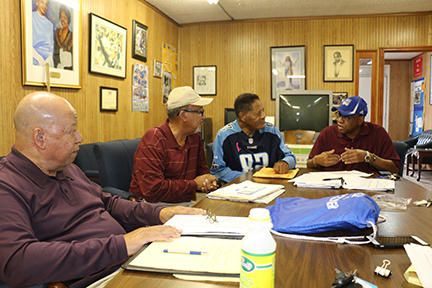By Peter White
NASHVILLE, TN — Metro’s track record for letting city contracts to African American businesses is dismal. According to Alex Coure with the local NAACP Economic Development Committee, Metro’s total spending with ethnic minority businesses has been less than 5% since 2013.
Coure and former Councilman Don Majors made a presentation to Metro Council’s Minority Caucus last month highlighting the lack of progress in awarding more contracts to Black businesses. Mayor Cooper attended the virtual briefing.
“Metro spends $1 billion a year. Only 6% have been reserved for minorities and it’s been going on for years. That drives the wealth gap that we are experiencing,” Coure said.
“It’s sad to see the conclusion but I’m grateful for Alex and Don Majors and the incredible work to conclude absolutely what a failure we have been and let’s determine not to get to 2022 and fail again. And I’m grateful to everybody for creating a path going forward where failure is not inevitable but in fact we are going to get to success,“ Cooper said.
Metro figures show that from 2016-2019 about 95% of all city contract dollars went to non-MWBE and White-owned female businesses. But in 2020 MWBE spending jumped to 10% of total contract dollars. It may have been a fluke.
“The increase we had in minority spending was primarily picked up by white females. Basically right now they are the only ethnic group that is benefiting which is not satisfactory,” Coure said. (see graph)
Figures from the 2018 disparity study show there are plenty of minority firms willing and able. They just aren’t

getting the work. While MBWEs are getting about 6% of all contract dollars, they have much higher percentages of availability in five work categories like construction, professional services, and goods.
“We believe procurement should specify in these particular categories the utilization of women and minority owned businesses because the disparity study identified the availability of those businesses within these work categories.”
Majors said the Finance Procurement Division is a big problem. It recently awarded three contracts to white-owned businesses that did not reach out to minority subcontractors like they are supposed to do.
Chief Procurement Officer Michele Hernandez Lane withdrew two of the contract offers. She is supposed to enforce the Procurement Nondiscrimination Program but too often Majors said those requirements are not enforced.
“If we keep on operating the way we are right now, my grandkids’ grandkids will be having this conversation with the minority caucus about moving ahead and getting equity,” Coure said.
Coure and Majors made several recommendations. One was to create a small business reserve so small companies don’t have to compete with some of the larger firms. Also needed is a community capital fund like the one in Charlotte, NC that allows small businesses to secure small loans to tide them over until the prime contractors they work with pay them. A community capital fund would also provide financing to minority firms to take on opportunities to serve as prime contractors.
“They are supposed to unbundle some of the large contracts so minorities get a chance to participate. We don’t’ see that has taken place and the MWBE goals that they have set aside are too low to achieve the goals. You can’t spend 10% on all minority businesses and expect to see any improvement,” Coure said.



